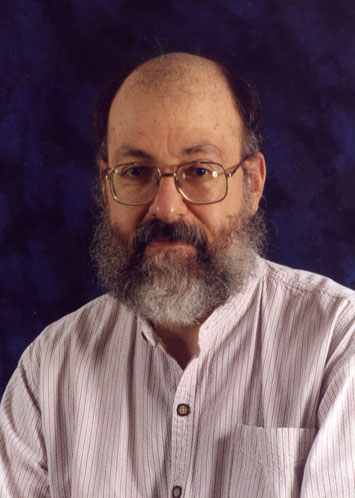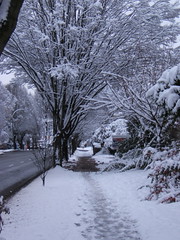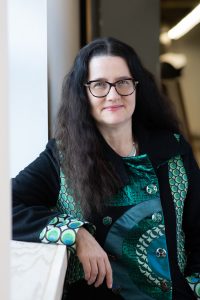A couple weeks ago in my intro to “A Key to the Illuminated Heretic,” I mentioned reading Harry Turtledove’s How Few Remain. I cannot even begin to say how much I loved that book. It was a bleeping revelation. It had Abraham Lincoln alive and well and agitating for labour reform, and Samuel Clemens writing scorching editorials in San Francisco and . . . well, everything Harry Turtledove says about Lest Darkness Fall, below—for me, How Few Remain was that book.

photo by Brent Small
I eased into this interview, as usual, by asking Harry for some general biographical information and about current writing projects before circling round to questions about his career, and how he got into the alternate history genre:
I’m 61 now, a scientist–most likely an astronomer–by original intention, but flunking out of Caltech at the end of my freshman year killed that dead. Ended up at UCLA, and got a doctorate, Lord help me, in Byzantine history. It’s Sprague de Camp’s fault. With an interest in science came an interest in SF, his not least among it. When I read Lest Darkness Fall, I started trying to find out how much he was making up and how much was real (not much and most, respectively), and I got hooked. Acquired ancient Greek and research skills, both of which have come in handy in various ways since.
When I got the degree, academic jobs were few and far between. I had a choice: do the university mercenary thing and move every year or two till I landed something tenure-track, if I ever did, or get a real job. So I parlayed (a fancy word for scammed) my degree and my few fiction sales into a tech-writing job at the Los Angeles County Office of Education. I was a hired keyboard: test-item writer, proposal writer, newsletter writer, copy editor, even emergency pasteup guy back at the tag end of the days when you really used rubber cement. Spent 11-1/2 years there, writing fiction on the side (and at my desk when things were slow–writing looks like writing, which is, mm, convenient).
Met Laura Frankos in 1978, married her in 1980. My second marriage, her first, and it seems to have stuck; we celebrated our 30th anniversary last month. We’ve got three girls, one in grad school, one married, one still an undergrad. No grandkids yet. Laura still writes as Frankos. She’s published a mystery novel, about a dozen sf and fantasy shorts, and has a Broadway musicals quiz book coming out from Applause this fall. We are each other’s first readers and editors, and if that doesn’t prove we get along well nothing ever will.
Coming out from Del Rey just about the time I write this is the second book of The War that Came Early series, which is called West and East (in fact, as I’m reviewing this copy UPS has brought a box of author copies to the door). This is a world where Munich failed and WW2 began over Czechoslovakia in 1938 rather than Poland in 1939, which makes for a very different-looking conflict for all kinds of reasons. I’ve also got a collection, Atlantis and Other Places, coming out from Roc at the end of the year; I’m currently procrastinating about the page proofs, but I’ll get ’em done. And I’m working on a series about what might happen if the supervolcano under Yellowstone goes off in the near future. Not surprisingly, the series is called Supervolcano; the working title for the first one is Eruption. And, since I was GoH at a con in Missoula Memorial Day weekend, I had the chance to rent a car, drive down to Yellowstone, and see what I’ll be destroying while it’s still here.
I started writing stuff when I was 8 or 9 years old, back in the 1950s. It was pretty good for 8 or 9, which of course means it was crap. First attempted an sf novel when I was maybe 13; two years later, I began the first one I finished. That was also crap, naturally, though on a higher level technically. Basically, I’d write a novel every summer till I got into grad school, where for about 5 years I wrote history instead (a different kind of fiction, some would say). Took up fiction again, more seriously, in my mid-20s, not least out of frustration with the way my thesis was going. Redid something I’d worked on before the hiatus, and that eventually became the first novel that sold (published in two parts, Wereblood and Werenight, by Belmont-Tower in 1979, as by Eric Iverson–they said no one would believe Turtledove, which is my real name). Started The Videssos Cycle in 1979, not knowing it would be four books–I would have been too intimidated to try it if I had, I think. Finished it in 1983, sold it to Del Rey in 1985. I’d sold some short fiction before then, and began selling it fairly regularly in about 1984.
I would have been maybe 26 when I picked up fiction again after putting it aside to dive into the late 6th century. I made my first sale at 28–short fiction (but the magazine died before the piece came out [sigh]). First novel saw print just before my 30th birthday. I started thinking of myself as a pro–someone who counted on writing income instead of treating it as found money–at 34 (Laura and I needed something, and we didn’t have the cash for it. I said, “Well, let’s wait till I sell another story, and we’ll get it then.” She gave me this look–you know the kind I mean. But a couple of weeks later Stan Schmidt bought a novelette, and we got whatever the heck it was.). I was 42–the answer to everything–when I left LACOE and went fulltime freelance, and I’ve been at it ever since.
Plainly, I have a jones. I’m not as obsessive-compulsive about it as I used to be, but I still write a lot. How can I do anything else?
Writers who sucked me in? Norton, Heinlein, de Camp, Poul Anderson, Mary Renault, Gore Vidal, Clarke, Asimov, Beam Piper, Sturgeon. A little later, Delany and Zelazny. I could name lots more, but those’ll do for starters.
I write in a number of genres. I’ve written several straight historical novels, both under my own name and as by H.N. Turteltaub, which was the family name before my grandfather anglicized it. I write mainstream fiction very occasionally, and even sell it every once in a while.
I stayed with the tech-writing job at LACOE till (a) I sold Guns of the South, and (b) they were going to reassign me to doing a bunch of stuff I couldn’t stand. After that, well, I had a couple of years’ income saved up, I had the Worldwar project in mind (I’d had it in mind for many years, but now was the time to write it)–if I wasn’t going to do it then, when was I? So in mid-1991 I quit, and (knocking wood) I’ve been telling lies for a living ever since. It’s been fiction all the way, pretty much; I have a couple of nonfiction projects on the back burner, but I don’t know if they’ll ever move up and get done. I’ve worked hard, and I know damn well I’ve been very lucky with the writing and in my life. You need both.
For some reason, I haven’t heard from the Nobel committee yet, nor am I holding my breath. Hey, Doris Lessing made it! I don’t like to talk about what I haven’t done yet, for fear of either weakening the inspiration or jinxing it.
The first breakthrough, obviously, is getting to the level where someone will pay you cash money for words you crank out. After that, you ask yourself and your characters harder questions. Pieces where I’ve really felt myself growing as a writer include The Videssos Cycle, Guns of the South, Ruled Brittania, and the recent short story “We Haven’t Got There Yet” on tor.com. Having that “Wow! I didn’t know I could do that!” feeling is mighty nice, as you’ll understand.
The worst surprise that came with publishing, I think, was some of the bad copyediting. I’ve had a c/e “correct” the King James Bible. I thought that was an all-time untouchable record, but I’ve seen it tied: another c/e “corrected” Shakespeare for me. I’ve had a c/e–wrongly–“correct” a language I invented. For that and other reasons, I asked not to have that c/e work with me any more, but s/he did, due to a publisher’s slipup, and–wrongly–“corrected” another language I invented. I could go on, but you get the idea.
Another imperfectly welcome surprise is how I read nowadays. I can’t enjoy most fiction the way I could before I turned into a writer; I read much more analytically and I’m much harder to satisfy. I read more nonfiction now, partly as research and partly because I don’t tear it to pieces in my head in quite the same way.
Without a doubt, the best of the business is the people. I’ve met and made friends with people I was reading for a million years before I got into the racket myself. Some of them have been to my house. If I had told my twenty-something self that that would happen, that self would have gone “Yeah, sure!” (they didn’t say “Yeah, right!” back then). But it’s true, and it’s great. And my best friends in the field are some of the ones who came up at the same time I did, more or less. Now, increasingly, the writers seem younger, but they’re still interesting people.
Writing is great. Beats the hell out of working for a living. I’ve done that. No fun at all.












